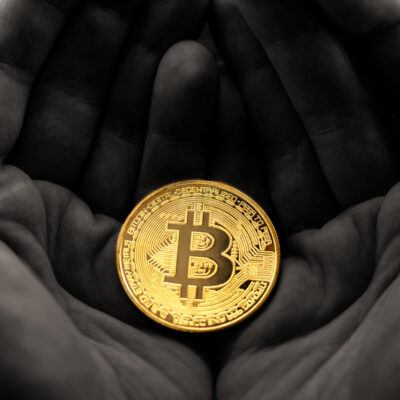
I had a conversation with a couple of my good friends a few months back, and after I explained everything I know about bitcoin and why they should buy it, their first response back was, “Yeah, I don’t know man. Isn’t buying bitcoin risky ?”
I had to think about it. Is buying bitcoin risky?
I’ve been down the rabbit hole of bitcoin education for about 3 years now, and to me, I don’t see bitcoin as a risky thing. I see bitcoin as a must-have. I can’t get enough bitcoin. There are some tradeoffs for sure, but I’m willing to accept those tradeoffs for the potential price gains.
No store of value is perfect. The truth is, all types of investments come with some kind of risk, even though you may not perceive them as risks, or even be aware that those risks exist. People lost their asses with internet stocks in the dot com bubble. Everyone got rekt in the real estate market in 2008. Even holding cash comes with risk, namely in the form of loss of purchasing power due to inflation, and of course opportunity cost!
Does buying bitcoin come with risk? Yes! As do all investments. Is buying bitcoin risky? Also yes. There’s a chance that bitcoin could fail and the price could go to zero. However, I’m also able to see the benefits of bitcoin, the use cases, and how bitcoin could succeed. In fact, I think there’s a good chance of it succeeding!
Being able to weigh the pros and cons of an investment, then get some skin in the game is how people make money in investing. You can’t make money sitting on the sidelines. Just make sure you understand what you own and you aren’t just following a trend.
Is Buying Bitcoin Risky? Assessing Your Risk Tolerance

Bitcoin Volatility VS Time Horizon
The thing about bitcoin’s volatility that drives me crazy when people talk about it is that it’s like nobody has a memory longer than two weeks. Or maybe a year. Doesn’t anybody remember the price of bitcoin from 2 years back? 5 years back? A 40% drop from $69k ATH is still 1000% higher than where we were 3 years ago. That sounds like a good tradeoff to me!
So maybe they want to say that early bitcoiners got lucky, but what counts as “early”? I bought my first bitcoin in 2017, which was 8 years after it was invented. By many standards, I was late to the game, yet here I sit, hodling more bitcoin than most people in the world. So even though I was “late”, I still made money and am still making money. In 10 years, people might say the same thing to you? Oh, you bought bitcoin in 2022? You’re so lucky you bought bitcoin early!
Suddenly it seems pretty obvious that you still have a lot of time to become an early adopter of bitcoin. At the end of the day, the volatility that happens in the short term doesn’t matter when in the long term, you end up with much greater purchasing power.
Related Content
Bitcoin VS US Dollar Risk

The opposite of “risk” is to hold your money in the stable US dollar – assuming you can get some. Don’t forget that the vast majority of people in the world don’t actually have access to stable currencies, and while the US dollar is inflating away 8.5% of your purchasing power every year, many other countries are experiencing double-digit inflation numbers. In places like Venezuela, Lebanon, and Turkey, people have had their entire life savings inflated away to be worth almost nothing.
Could something like that happen in the USA?
A lot of people say yes. Many are predicting a Bretton Woods III moment, where the dollar loses its currency reserve status in favor of “outside money” like gold and commodities which are not centrally controlled and politically influenced. If the dollar becomes less desirable around the world, then there’s a chance that US money printing could make inflation of the dollar much, much worse than it already is.
Personally, I think something like that seems pretty unlikely in the USA. The US dollar is the best of a bad bunch (other currencies). I would expect to see a lot more failing currencies before the dollar implodes. A kind of “canary in the coal mine” situation, with weaker currencies failing first.
The Main Risk Of USD Is Devaluation, Even If It’s A Slow Bleed
The main risk of holding USD is opportunity cost. If you have dollars in your bank, they are yielding -8.5% right now. If you are trying to buy other assets like real estate, you are losing 20% purchasing power every year. By not owning other types of assets, your savings aren’t keeping up with the cost of living.
With cash, you get stability, but you lose purchasing power over time. It may not seem like a big deal now, but over several years it compounds. Even with just 2% inflation after 20 years of saving money you lose more than 40% of your savings purchasing power due to inflation!
Bitcoin VS Stocks Risk
Is bitcoin riskier than stocks?
The first thing that comes to mind for me is that as a bitcoin maximalist, bitcoin is the only “crypto” worth holding. It’s not like the stock market where there are thousands of valuable companies to choose from and you try to pick one that outpaces the broad index of US equities. There are more than 10,000 different cryptocurrencies available, but the vast majority of them are super illiquid nonsensical bullshit. For 99.9% of normies, you should own bitcoin, or own nothing.
With individual stocks, many times there is just as much financial risk as there is in bitcoin. Although bitcon’s volatilty is famous, there are plenty of stocks that can match or even beat it. Just look at how Netflix lost 35% of its value in a single day, and more than 70% of its value over just a few months!

You might think this is an anomaly, but we saw the same thing happen to Facebook and other tech stocks this year. Plus, other popular stocks like Tesla, GameStop, and AMC have seen insane volatility as well. You can call those “meme stocks” but 4 of 5 FAANG stocks are down 25% in the last year. 3 of 5 are down more than 50% from their all time highs!
Maybe these are tech stocks, so can justify steep declines due to market volatility, but what about Target, which sells simple retail goods like clothing, groceries, and OTC medicine? It recently dropped 25% in a single day.

Imagine if you have a significant amount of your portfolio in any one of these stocks!
What About ETFs And Index Funds?
OK, so you want to say that you should be investing in ETFs or index funds instead, to track a group of stocks and reduce your risk. Don’t forget that entire sectors can be thrown into disarray. The energy sector was disrupted when the price of oil went negative for a short period when the pandemic first hit. Just two years later oil is on track to hit some of the most expensive prices ever in history thanks to the war in Ukraine and sanctions on Russia.
No doubt government policy is going to have an effect on green technology, and interest rates will have an effect on the housing sector. Nothing is safe from volatility.
Speaking of interest rates, with inflation running at a full 3x to what was originally intended, the federal reserve is supposedly planning on raising interest rates in the coming years, making the cost of capital more expensive. What do you think that’s going to do to the thousands of companies who are relying on low interest rates to finance cheap debt? What are higher interest rates going to do to average people borrowing money and how do you think it’ll affect their spending habits?
Buying stocks in an index fund doesn’t mean that you’ve invested in a risk free asset.
Bitcoin’s Risk Adjusted Return
So when thinking about bitcoin’s “risk”, most people say risk and what they actually mean is volatility. They are just worried that the price will go down. However, in finance, risk is quantifiable, and risk adjusted returns is an actual mathematical calculation you can run to see how assets compare in terms of how much they pay out versus how much risk you take on.
As it turns out, though bitcoin is highly volatile and is very high risk, its returns are outsized compared to the risk, making its risk adjusted returns extremely attractive compared to other investments like US stocks, gold, real estate, and bonds.

The main thing with high risk, high reward investments is that you need to hold them for a long enough time period to see your investment thesis play out. You’ve got to ride out those 80% dips to have a position for those 10x rips.
Another thing to consider in terms of bitcoin’s calculated risk as compared to other assets is that it has very low correlation to other assets. Though there are periods of correlation, over a long enough time period, bitcoin doesn’t follow one pattern. Its lack of correlation to other assets makes it a great hedge.
Asset Allocation VS Risk Tolerance
When you take all of this into consideration, I think there’s a pretty strong case to make that you should have some bitcoin. Pretty much the smallest amount you could have and still make any kind of meaningful gains would be a tiny 1% allocation to your portfolio. Even Ray Dalio agrees and says that 1-2% is appropriate.
This amount is small enough that if it went to zero you wouldn’t notice, but if it 100xs over the next decade you’ll see a massive difference in the size of your portfolio. It’s not uncommon to see a 1% bitcoin allocation turn into 90% as its growth dwarfs that of other assets.
In a situation like that, you then have to decide whether to rebalance or not. Some people say that you should be objective and adjust your portfolio every year, while others say that with a once-in-a-lifetime opportunity like Bitcoin you should just let your winner run. I tend to agree with the latter advice, but you could have guessed that.
The Big Unknown Future
I’m sure for the average person, looking at a chart and saying that bitcoin’s risk adjusted returns is better than other assets doesn’t exactly do much in terms of changing your idea of what “risk” actually means. In the minds of most people, watching the value of your investments go down is painful, and an 80-90% drawdown in the bitcoin price would be a max pain scenario. If you buy bitcoin you just kind of have to realize that nobody knows what’s going to happen in the future.
Bitcoin is a brand new technology that has never existed before. It’s not known if this technology will become more widely adopted, how governments will react or if the project will ultimately fail.
There are a lot of things that could make the price of bitcoin tank. We saw a massive drop in the price of all assets when COVID hit and bitcoin was not immune to this contagion. We’ve seen fear-mongering in the press about Russia possibly using bitcoin to avoid sanctions (they aren’t). Billionaires say it’s rat poison or that it’s bad for the environment. China banned mining. Ukraine banned exchanges.
Bitcoin Is New. There Will Always Be Challenges.
There is no shortage of tailwinds ahead of bitcoin, so buying and owning bitcoin comes with some risks.
The other side of the equation however is that bitcoin has always faced challenges, and somehow, 13 years later, it still exists and it’s better than ever. More people own it. More people use it. The value is higher. It’s easier to buy, hold, send, and receive every day. Despite the short term FUD and high price volatility, things seem to be going pretty good for bitcoin.
Ask yourself: What do you think the world is going to look like in 10 or 20 years? Will governments keep printing unlimited money? Will there still be a 21 million limit on the bitcoin supply? Will bitcoin be easier to use? I think so. That’s why I hold bitcoin.
Is Not Owning Bitcoin Risky?

Is owning zero bitcoin riskier than owning just a little bit?
Stocks and real estate are all near all time highs, and extremely sensitive to interest rate changes. With inflation in the US running hot at 8.5%, the Fed is looking to raise rates multiple times over the next couple years, and what effect do you think that’ll have on markets? Or will the markets crash, sending baby boomer wealth down the toilet, causing The Fed to start another round of QE?
In my opinion, the next couple of years for every asset class looking wonky. Both real estate and stocks could be cut in half and I would be surprised. Inflation in the USA could surpass 10% and I wouldn’t be surprised. There could be war with Russia and the price of oil could go parabolic. Everything is on the table.
Bitcoin is global, decentralized, neutral, and absolutely unique among all traditional assets. Maybe bitcoin could be an “everything hedge”. Is it worth the risk to not own any bitcoin when everyone else starts to figure that out?
Frequently Asked Questions
What Should I Consider When Buying Bitcoin?
When buying bitcoin you should consider the tradeoffs of investing in bitcoin versus investing in other types of assets. If you can fully recognize the pros and cons of bitcoin versus other asset classes, then you can probably stomach a deep bear market when the price is temporarily depressed.
What Is The Minimum Bitcoin Investment?
There are many apps and exchanges where you can buy as little as $1 in bitcoin.
What Is The Biggest Risk To Bitcoin?
Bitcoiners disagree as to what the biggest risk to bitcoin could be, and the assessment of those risks changes year to year. One big potential risk is the centralization of large public miners and the government capture of those miners after many years of consolidation. Another big potential risk is the adoption and acceptance of holding your bitcoin on exchanges, which could lead to “paper bitcoin”, or more bitcoin being counted than is actually available.
Is Bitcoin Dangerous For The Economy?
Some economists, pundits, and government officials have claimed that bitcoin is dangerous to the economy because of its volatility and its lack of centralized oversight. Bitcoiners would say that this is a feature, not a bug. Price volatility is the global free market working as intended, and its lack of central management is what makes it attractive as an asset.
What Is A Safe Amount To Invest In Bitcoin?
A safe amount to invest in bitcoin is an amount that you won’t need to use for 5-10 years. The price of bitcoin can go up or down very fast, so it’s not safe to invest money into bitcoin that you may need in the next year or two. If you invest more than you can afford, you may be forced to sell your bitcoin at a loss in order to pay for life expenses.


















 Bitcoin VS Real Estate VS Stocks
Bitcoin VS Real Estate VS Stocks
Leave a Reply